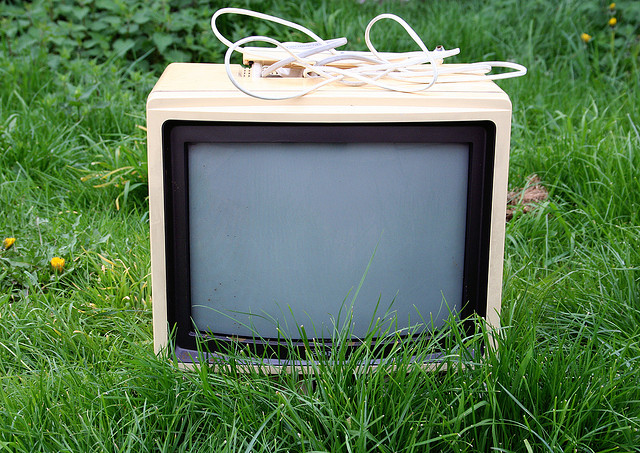
Rushkoff says present shock has shrunken our attention spans. Credit: jonnybaker/ Flickr Creative Commons
Guest:
- Douglas Rushkoff, media theorist and author of Present Shock: When Everything Happens Now
We’re being trained, like Pavlov’s dogs, to respond instantly to the constant beeps, chimes and reminders from the digital world around us.
In his book Present Shock: When Everything Happens Now, media theorist Douglas Rushkoff offers up a theory about how living in this brave new world changes us.
We used to be a society that accepted epic stories with a beginning, middle, and end. But now, says Rushkoff, we're more and more focused on the present. This shift has been enabled by technologies — like the remote control and more recently, the internet and smartphones — as well as the kind of media we consume – a la reality television.
We've lost our ability to think deeply about the past and the future, argues Rushkoff. And that's making us also lose touch with the real relationships and interpersonal interactions in our lives.
"We're stuck in this one notion of time, this idea of 'how old are you? How many things do you have? How close to retirement are you?' All these little metrics, and we're losing sight of the time in which our lives are actually occurring," says Rushkoff.
However, Rushkoff offers an alternative to the “present shock” of reality TV sensationalism. If society is pushing towards a constantly present state, can we strive to be “presentist”?
“Can I begin to explore the moment? Can I live in real time?” Rushkoff explains. “Can I begin to look into peoples’ eyes and experience the other human beings in the rooms that I’m living in?”
The cultural shift we've undergone, though, isn't necessarily bad, and Rushkoff remains optimistic that both our media and the way we interact with it will continue to grow and change.

